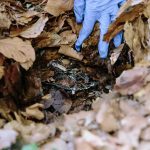Newly discovered fish species and transportation issues threaten alabama’s controversial data center project

A massive data center proposal in Bessemer, Alabama is facing mounting obstacles as the city council prepares for a crucial vote this Tuesday. The “hyperscale” facility, already unpopular with local residents, now confronts two significant new challenges: the discovery of a rare fish species and major transportation infrastructure problems.
The environmental stakes were raised in October when Yale biologist Thomas Near and his research team made a remarkable discovery during their visit to Alabama. While sampling local waterways, the scientists documented the existence of the Birmingham darter, a previously unknown fish species native to the region. This finding could have serious implications for the data center project, as newly identified species often receive protection under environmental regulations that restrict development in their habitats.
Adding to the project’s troubles, the Alabama Department of Transportation has raised concerns about what critics are calling a “road to nowhere” – apparently referring to inadequate infrastructure planning that would struggle to support the massive facility’s needs. Environmental groups have seized on these dual challenges to mount formal opposition to the project, which was already facing significant community resistance.
The convergence of scientific discovery and infrastructure reality presents a formidable barrier for developers who envisioned Alabama as an ideal location for their energy-intensive data center. As Bessemer’s city council weighs their decision, they must balance economic development promises against environmental protection and practical concerns about whether the local infrastructure can actually support such an ambitious project.
This article was written by the EnviroLink Editors as a summary of an article from: Inside Climate News







